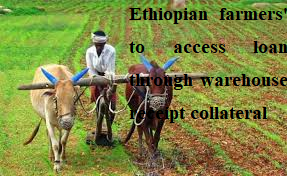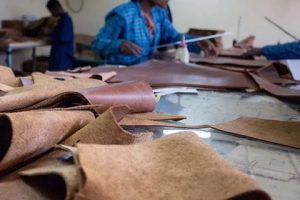
BY DANIEL ALEMAYEHU
In the process of transforming the economy from agriculture to industry-led, Ethiopia has been in a continuous process of meeting its objectives by applying various mechanisms. It is the fact that the industry sector is able to promote investment, create job opportunities, boosts production and other related benefits to the nation.
The Government of Ethiopia has taken multiple steps to attain structural change. It has built around 13 industrial parks across the country and created a free trade zone in Dire Dawa which stimulates the stagnated economy. Most of the industrial parks have tried their level best to attain their objective however, due to various challenges including the global pandemic and conflict in the country; some of the parks were performing under their capacity.
Industries can play pivotal role in creating linkage between the manufacturing and agriculture, boost private investment, encourages creativity, helps import substitution, strengthen export, transfer knowledge and skills, enable to establish a self- sustaining economy.
The parks, under the administration of Industrial Parks Development Corporation (IPDC) have been striving to achieve the goals they stand for. Previous reports indicated that most of the active industrial parks have been doing well amid challenges related to shortage of raw materials and foreign currency crunches. Not only these, they aspire implementing special sections of the manufacturing and becoming the hub of skills and knowledge transformations.
The corporation has created numerous partnerships and signed a number of agreements with both local and foreign investors and developers who wish to work in the industrial parks. It also plays its role on contributing their share to the overall progress of the country. In addition, the government very much committed to build more industrial parks and support them in any endeavor. International organizations have also put their fingerprints in the construction of the hubs. The corporation has also contacted with banks to get finance to finish what is started and to build new sites.
Speaking at Competitiveness and Job Creation Project closure ceremony, IPDC CEO Aklilu Tadesse discussed about the efforts made by the incumbent in the past few years and signed cooperation agreement with the international institutions. Aklilu stated that quite a lot of steps have been taken in the past few years to expand and meet the objectives in relation to industrial development by creating better bond and partnership with prominent international partners like the World Bank.
World Bank has shown its partnership and support by financing the construction of Bole Lemi II and Kilinto industrial parks that cost around 425 million USD reached to completion with remaining minor works. The industrial parks under construction eyeing their completion have the potential of creating more jobs by attracting investments from domestic and foreign companies, Aklilu noted.
Similarly, World Bank Acting Manager for Finance and Private Sector Alwaleed Fareed on his part said that, the main objective of constructing Bole Lemi II and Kilinto Industrial Parks ten years ago was to meet the query of job creation and foster the nation’s economic growth.
However, the manager further disclosed that Ethiopia, by far, is at the top of the list with bottlenecks that highly affect nation’s effort to link up with global value chains, creating job opportunities, and attracting foreign direct investments. With all the challenges, the nation has not stopped registering better accomplishments that bring more opportunities to the country.
Alwaleed Fareed added that industrial parks create opportunities contributing quality products, creating job opportunities and provides facilities to investors, attracting FDI, boosting export production and quality jobs. In this regard, the country has achieved a lot. It owns promising industrial parks. The achievements are also made by Bole Lemi II and Kilinto Industrial Parks, he added.
Presenting the nine month performance report of the fiscal year and evaluated in the presence of the Prime Minister, Industry Minister, Melaku Alebel elucidated that in the past nine months, the country has saved over 1.9 billion USD by substituting imported goods.
The nation has shown its ability to substitute imported goods in the manufacturing industries operating in the country and was able to save hard currency that would have been allocated for importation. He further said that, some of the industries have also been starting export.
Melaku further mentioned that the manufacturing sector has increased its production capacity from 46 percent to 53 percent in the last nine months and achieved 96 percent of the plan. To this end, other participants of the evaluation such as the Ministry of Agriculture, Ministry of Revenues, and Ministry of Industry forwarded their comments on the report.
Speaking on the market share of the manufacturing sector, Melaku noted that, it was 30 percent at the beginning of the 10-year prospective plan and to reach 34 percent this year. So far, it has been reached to 37 percent. Further, he added that in the future, attention must be given in order to identify those foreign products and replace them with domestic products.
By the same token, Agriculture Minister Girma Amente, on his part, talked about the achievement of the ministry. As to him, the agricultural sector, which has an annual target of 6 percent growth for the coming ten years, is in a position now to achieve 6.3 percent during the current fiscal year. Just like the Ministry of Industry, Girma mentioned that as part of the efforts being done to substitute agricultural import products, the nation has been able to fully substitute wheat and beer grains completely. Similarly, 50 percent of imported rice has also been substituted by domestic products. He added that various works will be done to make Ethiopia self-sufficient in rice production over the coming three years.
Again, Minister of Revenues, Aynalem Nigussie on her part talked about the nine months performance of her ministry. She elaborated that in the last nine months, 98 percent of the plan has been achieved by collecting domestic and foreign tax revenue, and encouraging results have been obtained.
She stated that Ethiopia’s development needs are growing at a high level and that increasing income performance will help to fulfill this national development needs in a better way. In the future, apart from achieving the plan, activities will continue to be strengthened by using technology, improving service delivery, increasing the awareness of the taxpayer community, and legal compliance.
The Ethiopian Herald May 25/2023





